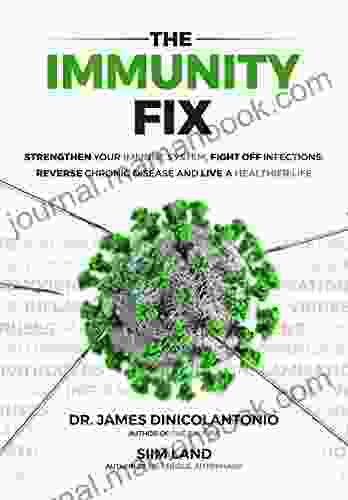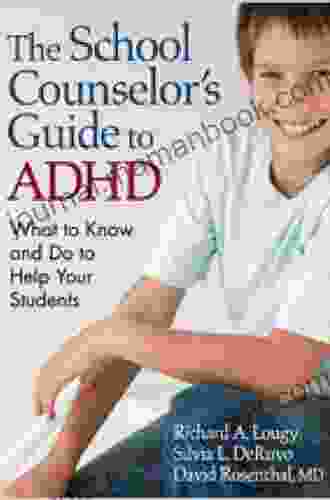The School Counselor's Guide to ADHD: Diagnosis, Treatment, and Support

ADHD is a neurodevelopmental disorder that affects approximately 5% of children and adolescents. It is characterized by symptoms such as difficulty paying attention, impulsivity, and hyperactivity. ADHD can have a significant impact on a student's academic, social, and behavioral development. School counselors are in a unique position to support students with ADHD, as they have the opportunity to work with them on a regular basis and observe their behavior in a variety of settings.
Diagnosis of ADHD
The diagnosis of ADHD is made by a qualified mental health professional, such as a psychiatrist or psychologist. The diagnosis is based on a comprehensive evaluation that includes a review of the student's symptoms, a medical history, and an observation of the student's behavior. The evaluation may also include a psychological assessment to rule out other possible causes of the student's symptoms, such as anxiety or depression.
5 out of 5
| Language | : | English |
| File size | : | 989 KB |
| Text-to-Speech | : | Enabled |
| Screen Reader | : | Supported |
| Enhanced typesetting | : | Enabled |
| Word Wise | : | Enabled |
| Print length | : | 186 pages |
Treatment of ADHD
The treatment of ADHD typically involves a combination of medication and therapy. Medication can help to improve symptoms such as inattention, impulsivity, and hyperactivity. Therapy can help students to learn coping mechanisms for dealing with their symptoms and to develop social and behavioral skills.
Medication
There are a variety of medications that can be used to treat ADHD. The most common type of medication is stimulants, which work by increasing the levels of dopamine and norepinephrine in the brain. Stimulants can help to improve attention, focus, and behavior. Other types of medication that may be used to treat ADHD include non-stimulants, which work by increasing the levels of norepinephrine and serotonin in the brain, and antidepressants, which can help to improve mood and behavior.
Therapy
Therapy can be a helpful addition to medication in the treatment of ADHD. There are a variety of different types of therapy that may be beneficial for students with ADHD, including:
- Behavioral therapy: This type of therapy teaches students strategies for managing their symptoms and improving their behavior.
- Cognitive-behavioral therapy: This type of therapy helps students to identify and change negative thoughts and behaviors.
- Social skills training: This type of therapy helps students to develop social skills and improve their relationships with others.
The Role of the School Counselor
School counselors play a vital role in supporting students with ADHD. They can provide individual and group counseling, consult with teachers and parents, and advocate for students with ADHD. School counselors can also help students to develop self-management skills and coping mechanisms for dealing with their symptoms.
Individual Counseling
Individual counseling can provide a safe and supportive environment for students with ADHD to discuss their challenges and develop coping mechanisms. School counselors can help students to understand their ADHD and its impact on their academic, social, and behavioral development. They can also help students to develop strategies for managing their symptoms and improving their functioning in school and at home.
Group Counseling
Group counseling can provide students with ADHD with the opportunity to connect with other students who are facing similar challenges. Group counseling can help students to learn from each other and to develop a sense of community and support. It can also provide students with the opportunity to practice their social skills and to build relationships with their peers.
Consultation with Teachers and Parents
School counselors can consult with teachers and parents to provide information about ADHD and its impact on students. They can help teachers and parents to understand the student's symptoms and to develop strategies for managing them in the classroom and at home. School counselors can also advocate for students with ADHD, ensuring that they have access to the services and support they need to succeed.
Self-Management Skills and Coping Mechanisms
School counselors can help students with ADHD to develop self-management skills and coping mechanisms for dealing with their symptoms. These skills may include:
- Time management skills: Students can learn how to manage their time effectively and to stay on task.
- Organization skills: Students can learn how to organize their materials and their time, which can help them to stay focused and reduce distractions.
- Study skills: Students can learn how to study effectively and to improve their comprehension.
- Social skills: Students can learn how to interact with others in a positive way and to build relationships with their peers.
- Coping mechanisms: Students can learn how to manage their stress and anxiety and to cope with the challenges of living with ADHD.
Resources for School Counselors
There are a number of resources available to school counselors who work with students with ADHD. These resources include:
- National Attention Deficit Disorder Association (CHADD): CHADD is a non-profit organization that provides support, education, and advocacy for people with ADHD. CHADD's website has a wealth of information about ADHD, including resources for school counselors.
- American Academy of Pediatrics (AAP): The AAP has developed a number of resources on ADHD, including a clinical practice guideline for the diagnosis and treatment of ADHD. The AAP's website also has a section on ADHD for parents and educators.
- Centers for Disease Control and Prevention (CDC): The CDC has developed a number of resources on ADHD, including a fact sheet on ADHD for school counselors. The CDC's website also has a section on ADHD for parents and educators.
- National Institute of Mental Health (NIMH): The NIMH has developed a number of resources on ADHD, including a fact sheet on ADHD for school counselors. The NIMH's website also has a section on ADHD for parents and educators.
ADHD is a neurodevelopmental disorder that can have a significant impact on a student's academic, social, and behavioral development. School counselors are in a unique position to support students with ADHD, as they have the opportunity to work with them on a regular basis and observe their behavior in a variety of settings. By providing individual and group counseling, consulting with teachers and parents, and advocating for students with ADHD, school counselors can help them to develop the skills and strategies they need to succeed in school and in life.

5 out of 5
| Language | : | English |
| File size | : | 989 KB |
| Text-to-Speech | : | Enabled |
| Screen Reader | : | Supported |
| Enhanced typesetting | : | Enabled |
| Word Wise | : | Enabled |
| Print length | : | 186 pages |
Do you want to contribute by writing guest posts on this blog?
Please contact us and send us a resume of previous articles that you have written.
 Top Book
Top Book Novel
Novel Fiction
Fiction Nonfiction
Nonfiction Literature
Literature Paperback
Paperback Hardcover
Hardcover E-book
E-book Audiobook
Audiobook Bestseller
Bestseller Classic
Classic Mystery
Mystery Thriller
Thriller Romance
Romance Fantasy
Fantasy Science Fiction
Science Fiction Biography
Biography Memoir
Memoir Autobiography
Autobiography Poetry
Poetry Drama
Drama Historical Fiction
Historical Fiction Self-help
Self-help Young Adult
Young Adult Childrens Books
Childrens Books Graphic Novel
Graphic Novel Anthology
Anthology Series
Series Encyclopedia
Encyclopedia Reference
Reference Guidebook
Guidebook Textbook
Textbook Workbook
Workbook Journal
Journal Diary
Diary Manuscript
Manuscript Folio
Folio Pulp Fiction
Pulp Fiction Short Stories
Short Stories Fairy Tales
Fairy Tales Fables
Fables Mythology
Mythology Philosophy
Philosophy Religion
Religion Spirituality
Spirituality Essays
Essays Critique
Critique Commentary
Commentary Glossary
Glossary Bibliography
Bibliography Index
Index Table of Contents
Table of Contents Preface
Preface Introduction
Introduction Foreword
Foreword Afterword
Afterword Appendices
Appendices Annotations
Annotations Footnotes
Footnotes Epilogue
Epilogue Prologue
Prologue Alessandra Lopez Y Royo
Alessandra Lopez Y Royo Deborah Garrison
Deborah Garrison Alex Allen
Alex Allen Jordan H J Lloyd
Jordan H J Lloyd James Mactavish
James Mactavish Destiny S Harris
Destiny S Harris Liam Long
Liam Long Rainbow Mosho
Rainbow Mosho Angela Daniel
Angela Daniel Ivy Wild
Ivy Wild Dr James Dinicolantonio
Dr James Dinicolantonio Thomas Coskeran
Thomas Coskeran Clare Hunter
Clare Hunter Lord Redesdale
Lord Redesdale Bryan Goodwin
Bryan Goodwin William M Wiecek
William M Wiecek Thomas Sherlock
Thomas Sherlock John Collins
John Collins Liz Reed
Liz Reed Carol L Matthews R N
Carol L Matthews R N
Light bulbAdvertise smarter! Our strategic ad space ensures maximum exposure. Reserve your spot today!

 Earl Williams15 Effective Strategies to Maintain Composure and Serenity for Children Aged...
Earl Williams15 Effective Strategies to Maintain Composure and Serenity for Children Aged... John ParkerFollow ·10.5k
John ParkerFollow ·10.5k Charlie ScottFollow ·10.1k
Charlie ScottFollow ·10.1k Eli BlairFollow ·7.9k
Eli BlairFollow ·7.9k Levi PowellFollow ·2.2k
Levi PowellFollow ·2.2k Robbie CarterFollow ·5.2k
Robbie CarterFollow ·5.2k Deacon BellFollow ·16.2k
Deacon BellFollow ·16.2k Ronald SimmonsFollow ·16.2k
Ronald SimmonsFollow ·16.2k Christian BarnesFollow ·18.5k
Christian BarnesFollow ·18.5k

 Alexandre Dumas
Alexandre DumasFugitive Telemetry: Unraveling the Secrets of the...
In the realm of...

 Caleb Carter
Caleb CarterBlack Clover Vol 25: Humans and Evil - A Journey into the...
Unveiling the Sinister Forces Black...

 Israel Bell
Israel BellHow to Make Offers So Good People Feel Stupid Saying No
In today's competitive business environment,...

 Simon Mitchell
Simon MitchellWrath of Hades: The Children of Atlantis
An Epic Tale of...

 Percy Bysshe Shelley
Percy Bysshe ShelleyStrengthen Your Immune System: Fight Off Infections,...
What is the...

 Clark Bell
Clark Bell10 Things I Wish Someone Had Told Me Earlier
As we navigate through life, we accumulate a...
5 out of 5
| Language | : | English |
| File size | : | 989 KB |
| Text-to-Speech | : | Enabled |
| Screen Reader | : | Supported |
| Enhanced typesetting | : | Enabled |
| Word Wise | : | Enabled |
| Print length | : | 186 pages |










